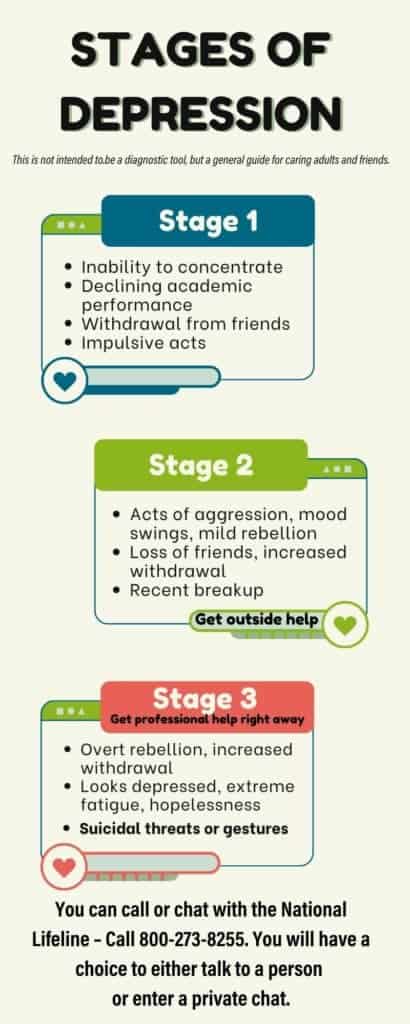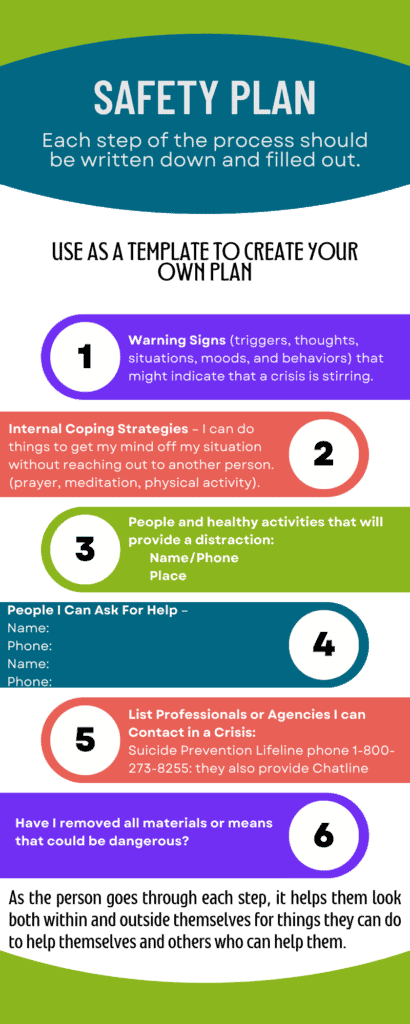Living With a Depressed Teenager
It’s 2:00 am, and your brain is overwhelmed to the point that you are almost having a panic attack – while at the same, time praying harder than ever before. Your thumbs dance frantically over your phone’s keyboard as you do searches for “helping my depressed teenager.” Finally, you wake up your husband and tell him what is going on. Immediately, he jumps into action. He quietly steps down the hall, and notices that your oldest seems to be sleeping soundly, so he fires a quick prayer for protection and wisdom.
Earlier that evening.
When you asked your teen how he was doing he answered, “Fine.” Nonetheless, you know better, right?
Because your house rules require all minors with cell phones to leave them in the kitchen an hour before bedtime, you noticed that, while the notifications sounds were off on his phone, he receivied more messages than usual.
You looked.
In part, out of concern and part curiosity, then fear gripped you as your stomach churned.
There were multiple messages from some of his school and church friends encouraging him to talk to someone, and other messages saying we are praying for you, don’t give up, talk to someone.
I wish I could tell you that this was a fictitious, cautionary tale, but it isn’t.
Understanding the Rise of Depressed and Suicidal Teens
Over the past few years, concerned professionals have noticed a radical change in tweens and teens in the United States. Take a moment to think back on your junior or senior year in high school. In the 70s and early ’80s, some of the significant health concerns for adolescents were binge drinking, getting pregnant, smoking, and drunk driving.
While these concerns have somewhat diminished, the most pressing public health concerns for this age group today are related to the dangerous increase in mental health concerns.
Between 2001 and 2019, suicide rates of children between the ages of 10 and 19 increased by about 40 percent, and ER visits for self-harm inflated to 88 percent.
The deterioration of adolescent mental health was already moving in an alarming direction. Still, it was further aggravated by the Covid pandemic.
Christian parents face the daunting task of raising children in a callous world.

Talk to a Counselor
If you need further guidance and encouragement, Focus on the Family has a staff of licensed, professional counselors who offer a one-time complimentary consultation from a Christian perspective. They can also refer you to counselors in your area for ongoing assistance.Reach a Focus on the Family counselor toll-free at 1-855-771-HELP (4357).
Call Now
Suicide Prevention: Know the Stages of Depression

What you can ask if someone tells you they have been thinking about suicide.
The SLAP Method has been around for years and is a proven method for a layperson to quickly assess a person’s suicidal ideation.
Dr. Kenneth Morris developed the SLAP Method to help clarify a person’s suicidal thoughts.
S – specific plan. Does the person have a specific plan? If the answer is yes, go to the next question.
L – Lethality of Plan – Is the plan deadly? How quick would a person die if they followed this plan? The higher the lethality, the more significant the risk.
A – Availability of plan – Do they have access to the means or materials. If yes, they are in immediate danger–get help.
P – Proximity of help – Are people close enough to help?
How to Engage Your Teen Struggling With Depression.
Create a Safety Plan
This template will help depressed and/or suicidal teens and their parents begin to think outside of the dark box they may find themselves in.

Be straightforward, compassionate, and clear. Don’t be afraid to ask the hard questions. Be sympathetic, patient, non-judgmental, calm, and accepting. Offer hope. Try to build on their strengths. Be gentle and curious and be persistent, without being pushy.
It’s important to remember, shame and stigma can be a dangerous part of the equation, so your teen will most likely shut down if you come across as preachy, judgmental, or angry.
Try not to act shocked, stunned, or overly dramatic. As hard as these life issues are to discuss, our young people need adults who will listen.
Biblical Hope
Deuteronomy 31: 8 assures us, “It is the Lord who goes before you. He will be with you; he will not leave you or forsake you. Do not fear or be dismayed.”
Psalm 34:18 declares “The Lord is close to the brokenhearted; he rescues those whose spirits are crushed.”
You Are Not Alone
The mental health crisis our young are facing has become a dire situation. So much so, on December 7, 2021, the United States Surgeon General issued a rare advisory regarding the Youth Mental Health Crisis.
On the surface, it appears that many kids are doing great. But the dark underbelly, with scary trends of increased anxiety, depression, self-harm, and suicide.
So, what is causing this?
There are multiple issues, including the rise of social media and that teens are getting less sleep and exercise. Add to that the unsettling shift of moving away from face-to-face interaction and feelings being expressed only through emojis and not through personal eyeball to eyeball interaction. Another scary yet scientifically verified fact is that the onset of puberty has dramatically dropped for both girls and boys over the last century. These are only a small sample of some of the reasons for our current mental health crisis.
You are the first line of defense for your kids!
Raising children is the toughest thing you will ever do, but you are not alone. Reach out to your church, your friends, and your community. God will lead, guide, and direct you.
The post How to Know if Your Child is Depressed or Suicidal appeared first on Focus on the Family.
Continue reading...





